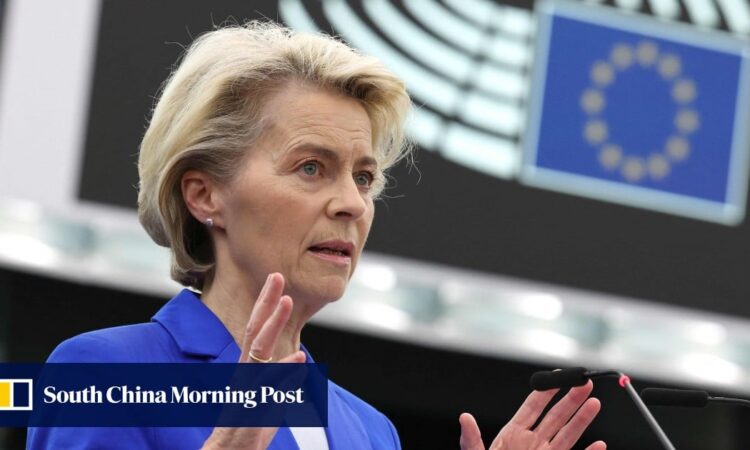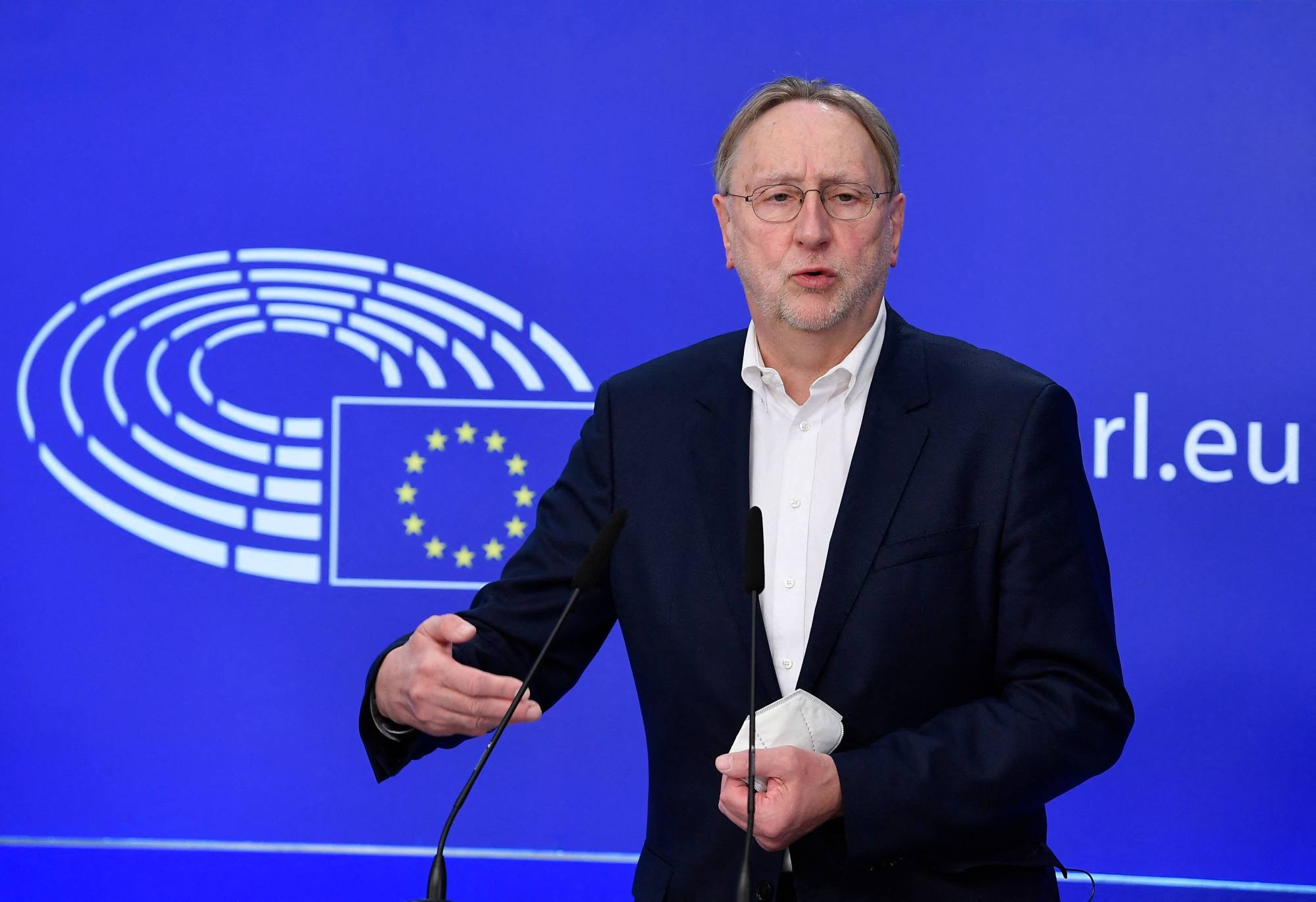
On trade, an expected deal on steel and aluminium is beginning to look doubtful. The US wants the EU to probe overcapacity in the global industries of the two metals, with a view to slapping tariffs of 25 per cent on steel products and 10 per cent on aluminium from non-market economies – shorthand for China, by far the world’s biggest exporter of both product groups.
In return, the EU wants the permanent and full revocation of all Trump-era tariffs on its products, a deal it was hopeful of securing as recently as last week.
This week, however, Washington said it wanted to insert a clause that would allow it to reimpose the duties in the future, leaving European counterparts fuming, according to people involved in the talks.
“It’s just all last minute and bullying over without any real strategy on how to negotiate,” said one senior EU official, who added that, on China, the US was pushing for the “kitchen sink, with a janitor included”.
A lack of progress on metals meant it was removed from EU ambassadors’ agenda in Brussels on Wednesday afternoon.
Depending on how Wednesday’s talks go in Washington, the envoys may hold an emergency meeting on Thursday to greenlight a deal on behalf of their member states. An EU trade source said the pair could end up with a fudged compromise, “more of a road map towards an agreement than an actual agreement”.
China needs to take EU more seriously, bloc’s foreign policy chief says
China needs to take EU more seriously, bloc’s foreign policy chief says
“In no way should the EU agree to a framework that would undermine the WTO, weaken the multilateral trading system and lead to even more protectionism and fragmented globalisation,” said Bernd Lange, chair of the European Parliament’s trade committee.
The agreement on metals would not name China, but the joint statement certainly would. Yet even on that front, the pair were at loggerheads.
The EU has sought to adhere closely to the text agreed by its 27 national leaders during a summit in June. Then, the statement ran to 366 words and focused on ways to partner with China, as well as how to address European grievances.

On this front, the two sides were expected to land somewhere in the middle. But the tough love shown by Biden’s team has left a bitter taste in the mouth of some European officials.
“I don’t know why anyone is surprised. This has been the American approach since day one of the ‘reset’,” said one source. “Biden says comforting words to von der Leyen, then they push back hard at [a] technical or negotiator level.”
A narrow deal on critical minerals leading to a removal of trade tariffs or quotas on some of the raw materials needed to power green industries was thought to be closer, although some differences remained over a section on economic security, sources said.
EU to investigate Chinese steel and aluminium sectors, with tariffs looming
EU to investigate Chinese steel and aluminium sectors, with tariffs looming
On the latter, the lack of a unified EU position has not helped. The European Commission made a bare-bones proposal for an economic security strategy in June, but now seeks to flesh it out. Eventually it could lead to more export controls and outbound investment screening directed at China, but these were likely to come far in the future.
“The upcoming summit has a rare feature: it has substance,” said Agathe Demarais, a senior policy fellow for geoeconomics at the European Council on Foreign Relations.
“The key expected deliverables show how the combined impact of the de-risking process, the Western willingness to respond to China’s economic rise and the green energy transition are reshaping US-EU relations.”






